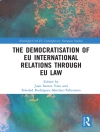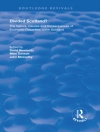From the start of the U.S. war in Afghanistan in 2001 to the withdrawal of U.S. troops in 2014, Pakistan’s military cooperation was critical to the United States. Yet Pakistani politics remain a source of anxiety for American policymakers. Despite some progress toward democratic consolidation over the last ten years, Pakistan’s military still asserts power over the country’s elected government. Pakistan’s western regions remain largely ungoverned and home to the last remnants of al-Qaeda’s original leadership as well as multiple militant groups that have declared war on the Pakistani state. The country’s economy is in shambles, and continuing tensions with India endanger efforts to bring a durable peace to a region haunted by the distant threat of nuclear war.
Pakistan’s Enduring Challenges surveys the political and economic landscape of Pakistan in the wake of U.S. military withdrawal. Experts in the domestic and international affairs of the region consider the country’s prospects from a variety of angles, including security issues and nuclear posture, relations with Afghanistan, India, and the United States, Pakistan’s Islamist movements, and the CIA’s use of drone warfare in Pakistan’s tribal areas. This timely volume offers a concise, accessible, and expert guide to the currents that will shape the country’s future.
Contributors : Christopher Clary, C. Christine Fair, Daveed Gartenstein-Ross, Karl Kaltenthaler, Feisal Khan, William J. Miller, Aparna Pande, Paul Staniland, Stephen Tankel, Tara Vassefi, Sarah J. Watson, Joshua T. White, Huma Yusef.
Mục lục
Introduction: Pakistan’s Challenges Beyond 2014
—C. Christine Fair and Sarah J. Watson
PART I. SECURITY CHALLENGES
Chapter 1. Pakistani Militancy in the Shadow of the U.S. Withdrawal
—Stephen Tankel
Chapter 2. A Cooperative Jihad? The Religious Logic of Hafiz Muhammad Saeed and the Limits of Pan-Sunni Cooperation in Pakistan
—Joshua T. White
Chapter 3. The Future of the American Drone Program in Pakistan
—Sarah J. Watson and C. Christine Fair
Chapter 4. The Safety and Security of the Pakistani Nuclear Arsenal
—Christopher Clary
PART II. DOMESTIC POLITICAL AND ECONOMIC ISSUES
Chapter 5. Democracy on the Leash in Pakistan
—C. Christine Fair
Chapter 6. New Media in Naya Pakistan: Technologies of Transformation or Control?
—Huma Yusuf
Chapter 7. Pakistan’s Self-Inflicted Economic Crises
—Feisal Khan
PART III. FOREIGN RELATIONS
Chapter 8. America and Pakistan After 2014: Toward Strategic Breathing Space
—Paul Staniland
Chapter 9. Partner or Enemy? The Sources of Attitudes Toward the United States in Pakistan
—Karl Kaltenthaler and William J. Miller
Chapter 10. Friends of Last Resort: Pakistan’s Relations with China and Saudi Arabia
—Aparna Pande
Chapter 11. Violent Nonstate Actors in the Afghanistan-Pakistan Relationship: Historical Context and Future Prospects
—Daveed Gartenstein-Ross and Tara Vassefi
List of Contributors
Index
Acknowledgments
Giới thiệu về tác giả
C. Christine Fair teaches in the Department of Peace and Security Studies in the Edmund A. Walsh School of Foreign Service at Georgetown University. She is author of several books, including The Madrassah Challenge: Militancy and Religious Education in Pakistan. Sarah J. Watson is Intelligence Research Specialist for the Counterterrorism Bureau of the New York City Police Department.












